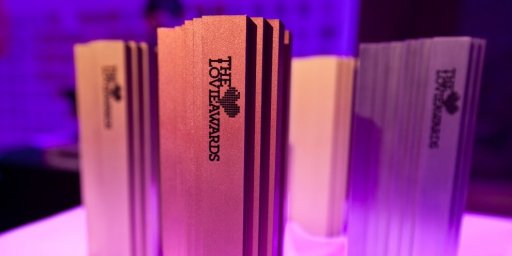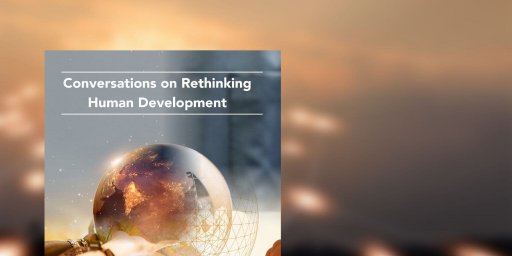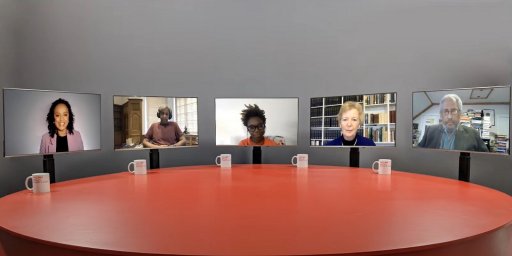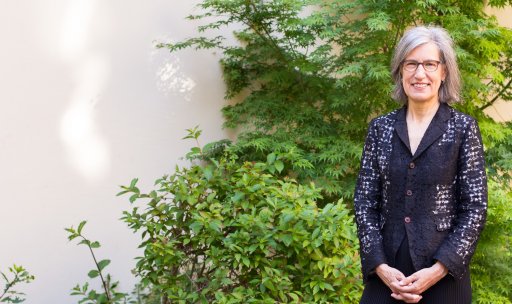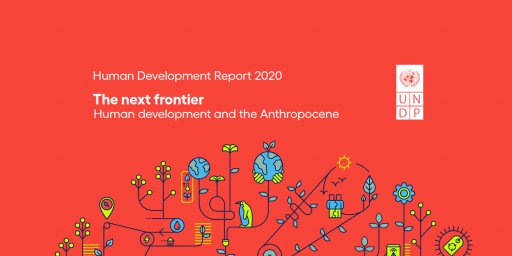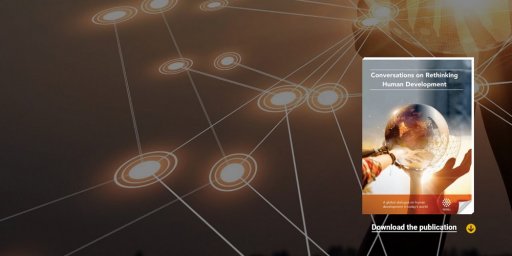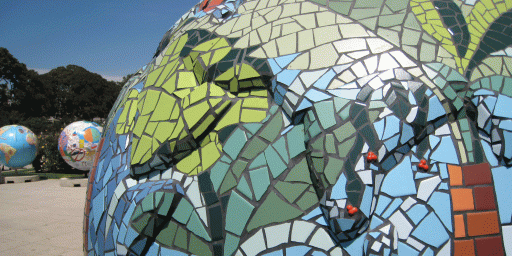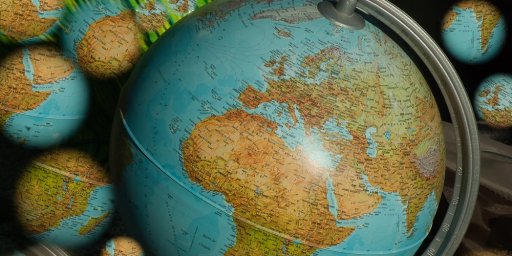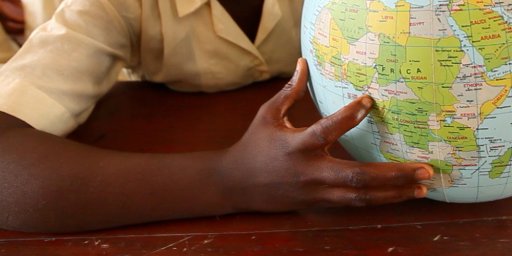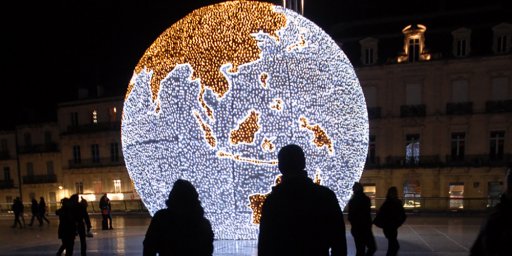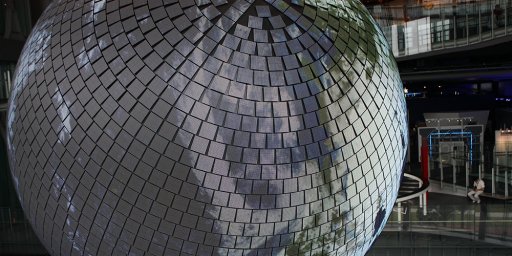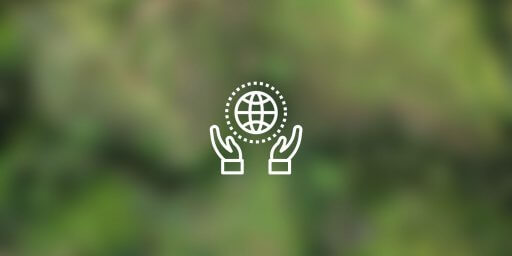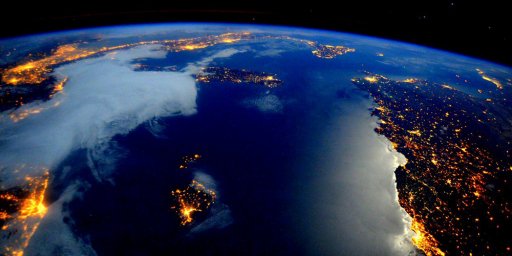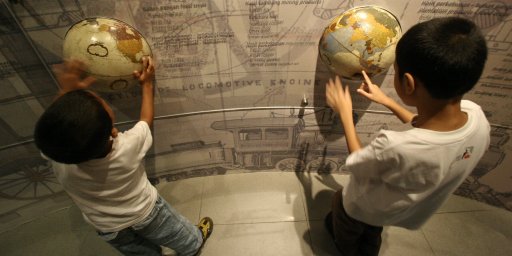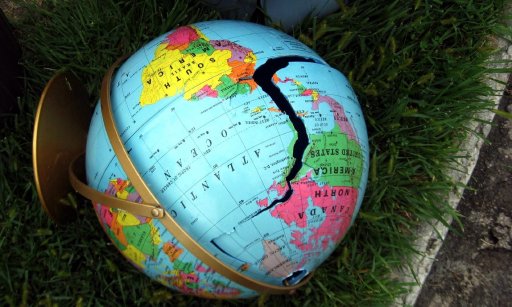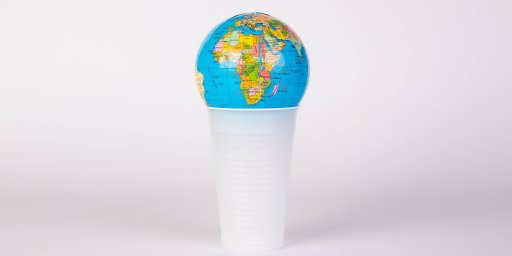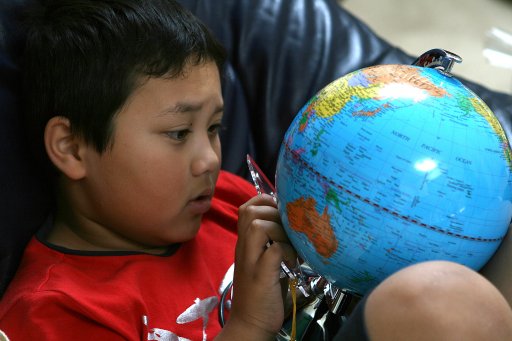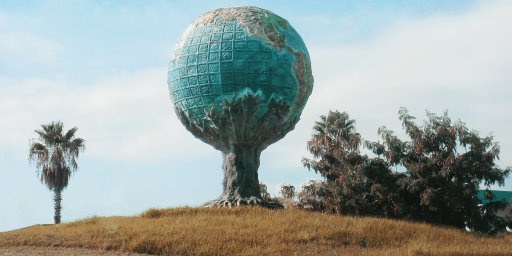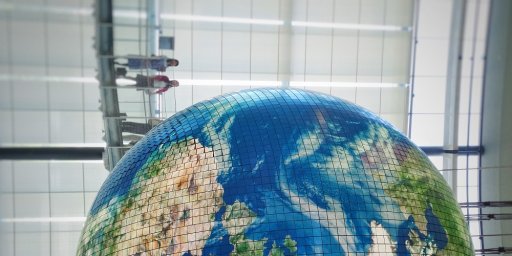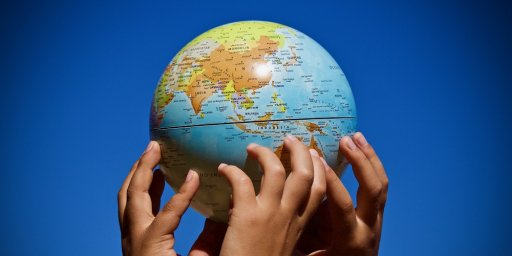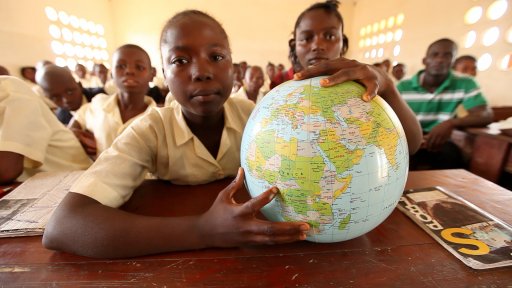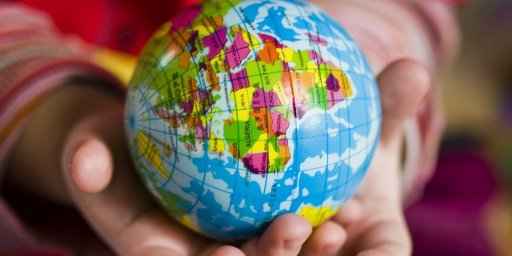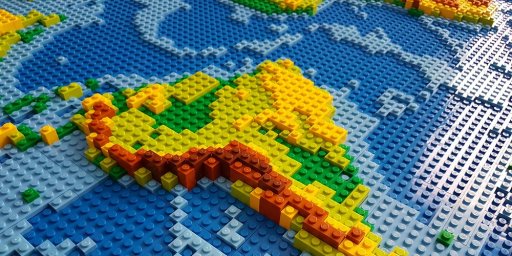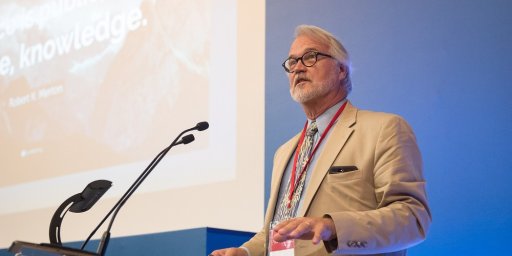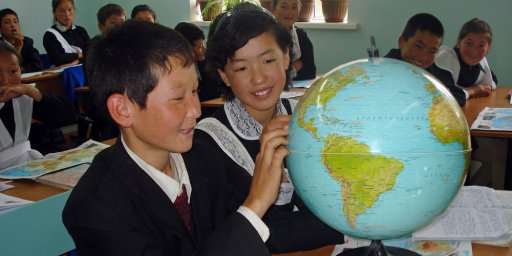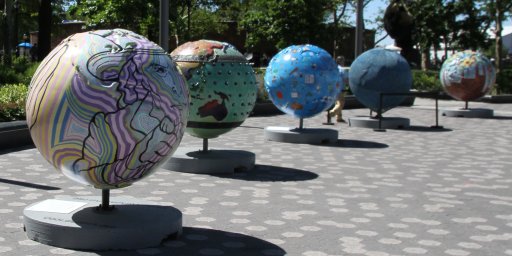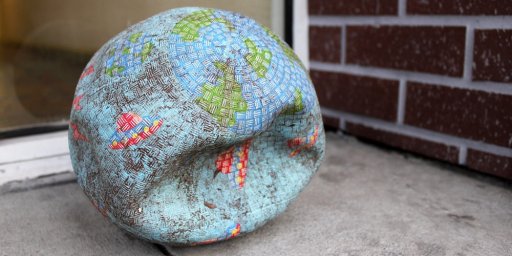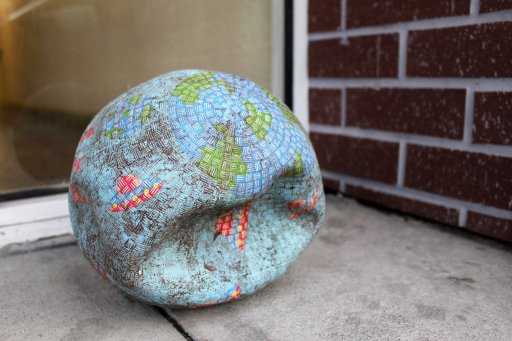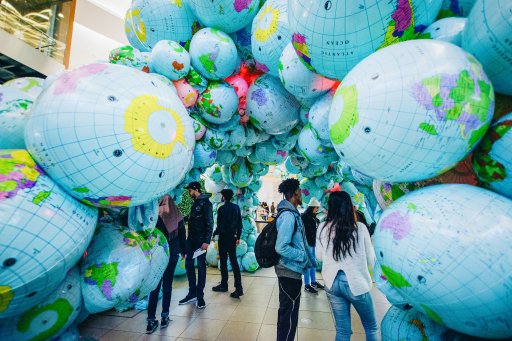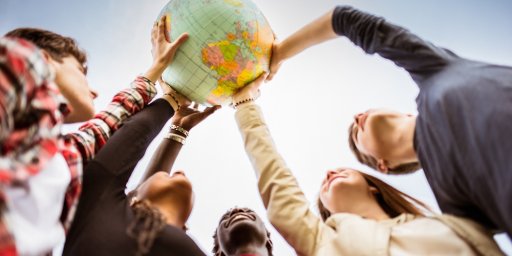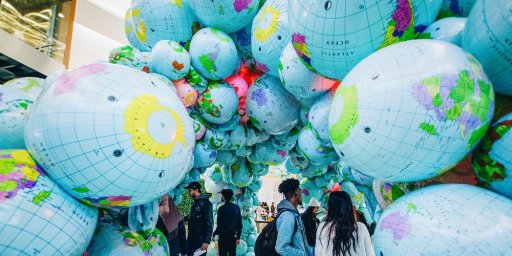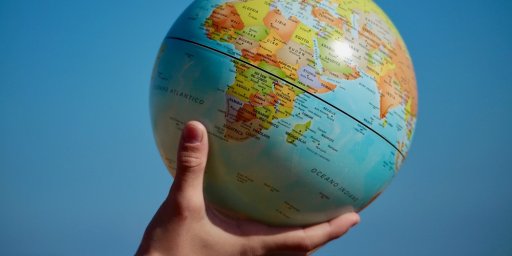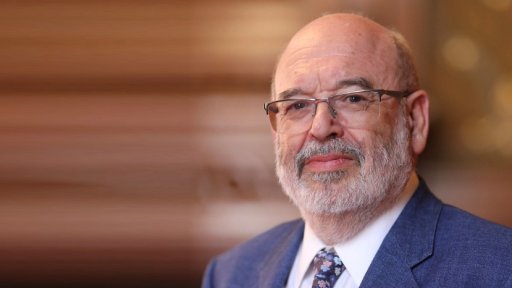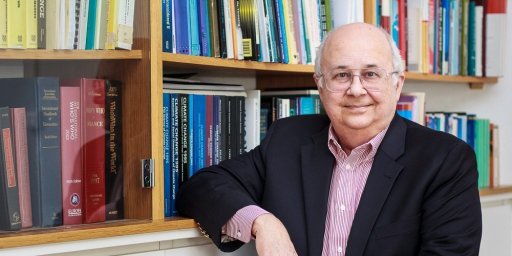You are primarily an educator; can you tell us how you think we should reconceptualize human development?
I do indeed consider myself an educator; this is a conscious choice that I made about 20 years ago now, even though my earlier training was as a civil engineer. My main scholarly pursuit is to understand how education forms humans and influences our possibility to survive, to make a living and to develop as unique individuals. To me, it is clear that education should be recognized as one of the most important developmental phases of humans. Unfortunately, what I see around me today is a world where the large majority of people are not really prepared to access the full spectrum of education available; gaps between the educated and uneducated are becoming larger; and worse still, even the education that can be accessed is not really able to deliver what it promises. There are huge challenges in education that need our urgent attention.
Take the specific issue of low literacy rates in children in contexts like mine: to some extent this is the result of the disconnect between the child’s daily life and what they are taught in school. In Uganda, for instance, the majority of the population lives in a rural setting, and most children who start school may have encountered neither a book, nor the English language itself. However, a lot of their instruction is carried out in English, using books written in English, and depicting life unlike anything the child is accustomed to. From that moment on, they are expected to take on literacy skills in a language they do not speak or understand, while simultaneously trying to make sense of the ideas that are being expressed in that same foreign language – no wonder they struggle to transfer what they encounter in school to their daily lives.
Uganda has made some attempts to remedy this situation by mandating that the language of instruction in the first three years of primary school should be in the region’s dominant local language. However, teachers are not equipped to teach in the local language, nor are there adequate teaching resources in these languages. To make things worse, some teachers are transferred to areas where they do not even speak the local language, making it impossible for them to teach in it. For these and other reasons, therefore, this policy has not been as successful as it could have been.
I’ll share a final example from an experience during the recent COVID-19 lockdown, where I took on the task of teaching an 11-year old boy how to read – Mukisa had been in school for six years but had kept being held back because he could not read. The school materials available online, such as Jolly Phonics, mention things like picnics, ponies and snow, and I had to explain to him what these words mean because he has obviously never experienced these things. So not only the language but also the concepts are foreign, and these are the problems we encounter before we even speak of the acquisition of other skills like numeracy. This reality, therefore, means that counting the number of children enrolled in schools is a very poor measure of education and human development.
Thirty years ago, the main idea underlying human development was the fulfilment of the potential or capabilities of human beings. What does this mean for you today and in the context of your work?
The word ‘potential’ is very important and concerns me a lot. I will go back to Mukisa’s case: despite the fact that he has lagged behind in school, with targeted attention and correct instruction he has made tremendous progress. So, it was never that he did not have the potential, but that his potential could not be realized. I can’t help but wonder, in that case, how he ever would have fully realized his potential had he not met me. I imagine him at age 18 – would I still be able to rescue the situation? Would the tactics I used at age 11 still work at age 18? Probably not! Which is why ‘one-size-fits all’ is not a viable approach to human development.
To make things even more complex, the idea of human capabilities is itself quite multi-dimensional, so that thinking about how to create the conditions in which everyone can fully realize their potential, at any age, becomes Mission Impossible. The central issue for me then becomes the following: how can every human being have the opportunity to become who they are, and to take their place in the world after acquiring the necessary skills and utilizing all the opportunities available to determine their own reality? Moreover, even with institutions in place to create these enabling environments, do we have the capacity to reach an individual’s inner environment?
What do I mean about our inner environments? Let’s go back to Mukisa. At his young age he already had quite strong beliefs about how far he could go in life because of his limited reading skills. He once dreamed of being a lawyer but has now settled becoming an apprentice in an auto garage. So even with the enabling environment in place (such as my volunteering to teach him), my efforts still might fail if there is no change to his internal environment.
How, in our current development frameworks, can we reach people’s minds, their attitudes and their beliefs? This is multi-layered because if Mukisa cannot read and believes he will never be able to learn properly, even access to schooling and a teacher won’t be enough to ensure the full development of his potential. The constrained self-belief already creates a limit to how far he can develop or put what he learns to use. All this says that we can create an institutional enabling environment, but we must in addition allow for the limitations that people’s inner structures of self-worth and value can throw in the way, and how this can be addressed (if at all possible).
Adding another layer of complexity to this picture, we also need to account for the role of the informal education system. This is one more important arena in which education in a context like mine proceeds, especially for those who never access, or those who drop out of, the formal education system. The informal education system creates parallel realities in our societies. Within the informal education system, children learn a lot about their environment, about their culture, and pick up beliefs about how to go about life that have been passed down for generations.
Alongside this system is formal education, where children can learn about science and mathematics and the history of the world, but also pick up a lot of ideas about life that were passed down through generations, but not by generations that lived in their environment. These ‘educated’ individuals then live side-by-side with the ‘uneducated’, and a development approach must encompass them both.
Reflecting a little further on these parallel realities, it would seem that when one benefits from the informal education system, one is most likely losing out on the formal, and vice versa, resulting in the mis-education of both. Why can’t we have both? Having been raised in a city and having full access to the formal education system, for instance, I became quite divorced from my environment and consider myself uneducated in many ways.
My ability to move around in my environment is hampered by my limited knowledge of the contextual factors that define my city and my country, even though I am considered to be highly educated. I have often thought, for instance, that I would find it very difficult to run for political office simply because I may not understand the language, concerns and ways of a large proportion of the society that I would be seeking to represent. I am divorced from it by the fact that I have been formed primarily in this other parallel formal education system.
Finally, overlying all this is a layer beyond these parallel realities created by the formal and informal education systems. As an African, or as a woman, there are other beliefs I hold that I have unconsciously absorbed from sources beyond my immediate environment. This comes through the media I consume, the books I read, and the people I talk to, which present me with their own view of who I am and what place I inhabit or should inhabit in the world, and therefore what is possible and what is not. Some of these ideas are so unconsciously taken in that one is not even aware of acting based on the assumptions underlying this unquestioned social, economic and cultural hierarchy.
The way that we are perceived or represented as a group in comparison to other groups in society also affects our inner self perception of being this or that way, able to do this or not do that, and ultimately the extent to which we can fulfil our true potential. So, the three aspects are interlinked: our formal education; the education we get informally experiencing and interacting with our own localities and contexts; and finally the education we absorb about the way our societies, and ourselves as part of them, are perceived from the outside.
I will end by saying that although this third layer is fully external to people, it can deeply affect people’s inner lives. The history of colonialism, and the naming and labels countries get, such as more or less developed, all have profound consequences for the possibility of attaining our full potential, and as such should concern anyone thinking about human development as a concept as well as a reality.
What are the major emerging challenges, problems and threats to human-centred development in the world today?
Given everything that I have said up to this point, it should come as no surprise that I see a major challenge in the notion that development can be driven externally. Development can be described, studied, measured and quantified. However, at its heart it is (or should be) about the individual and about context. On the one hand, there is so much diversity at the individual level, in addition to a diversity of contexts, that synthesizing this complexity into a single view is a sure way to lose meaning altogether. So, in the first place, the main challenge is the conceptualization itself.
The second challenge is how to measure this development (if we say we succeeded in conceptualizing it), and then finally to chart a path to a more desired future. I find it really difficult to conceive of the many potential development pathways that different people and different societies could take. This is especially difficult without an understanding of, or access to, people’s internal environments, as well as their unique and changing contexts. Human development, to me then, appears only to be possible through activating people’s individual possibilities for self-determination – the future that someone else with their own measures could dream for them is not necessarily desirable, even if it was attainable.
This is in stark contrast to what we have seen in the entrenched idea of economic development taken on by our African leaders, with visible and grandiose infrastructure projects as evidence alongside a neglect of the factors that would really lead to people’s self-determination. A lot of these leaders think that they will bring development to their constituencies by building roads or hospitals. As important as these projects are, this will not bring up levels of human development, which in my view entails providing for self-determination.
Young people are facing a very uncertain future. What are their key human development challenges?
What I see around me are two, possibly opposite, realities. On the one hand, education is becoming a source for disenchantment, because it no longer leads to the opportunities that it has traditionally promised. On the other hand, there is a quietly rising awareness about the lie we have been fed about the benefits of development, as it becomes apparent that it produces as many problems as it purports to solve. These two realities simultaneously create an opportunity to have more control about our future and produce some first tentative signs of some taking bold steps in that direction.
Speaking with reference to the first reality, there are many educated yet unemployed, and unemployable, young people. The relevance and adequacy of education for the average Ugandan, for instance, has become so low that people have become disillusioned with education altogether. At the other end of the spectrum is the uneducated youth. These individuals are aware that they are surrounded by a lot of urgent challenges, but they feel completely incapacitated to address them, since they have a deep belief that without education one can do nothing. And then in the midst of this educated–uneducated mix is also the reality that our economies are not able to provide jobs to occupy all the restless youth.
What this brings me to is the need to urgently revisit the purpose of our formal education, rather than focusing on how many schools we have in this or that district. What’s more, instead of piling on more content, or running after the latest fads, we ought to start from the ground up: what matters in each child’s environment? Is it drought? Is it disease? What community approaches have worked in the past? Where could they improve? Is it appropriate to have a single curriculum for the entire country? Or should we allow the environment to dictate what should be taught in addition to the basics?
Take for example the current race across the continent to prioritize education on information communication technologies (ICT) in secondary schools. These plans do not consider provision of computers, or the proper training of and equipment for teachers. So, children will be in a school for two or three years ‘learning’ ICT but will in fact learn very little since they would not have any first-hand experience of a computer during those three years, or even soon after. Why not, instead, use the time and sparse resources to provide education that is more connected to the challenges that young people will face in their region; for example, the challenges of livelihoods, climate change impacts, or social issues.
Why not create an opportunity for these children to learn about challenges they could tackle, to identify specific problems and to then obtain skills to solve them? If they are taught about ICT without the needed equipment, they go back home empty-handed, unable to take advantage of ICT and unable to solve pressing issues, such as access to energy or clean water. They are educated but have no opportunities, which is waste on top of more waste; this is one reality in Africa.
Coming to the other more promising reality, there is a rising consciousness that one feels across the continent: the realization that these stories about development in other countries do not add up, that those lives lived elsewhere, shiny as they are presented to us, also have their downsides and create other problems. For example, regarding climate change or environmental degradation, we know that our lifestyles are much more sustainable than the lifestyles that are considered developed. We now begin to think, instead, that our lives are quite good if we are not unhappy or sick very often, and that our families are strong, for instance.
So, we need to raise consciousness about how what we are told about a better life ‘over there’ infiltrates our societies, and we should become aware of the problems that occur in other societies. I see more and more people now being sceptical about the ‘better life’ that they are being sold. More and more people are spreading a counter message. Perhaps this message is spreading only among more educated people like myself, but it nevertheless gives me a sense of hope that we might still be able to self-determine and decide what human development means for us. When I see this shift in people beginning to become more conscious, with the internal environment beginning to awaken, it gives me a lot of hope.
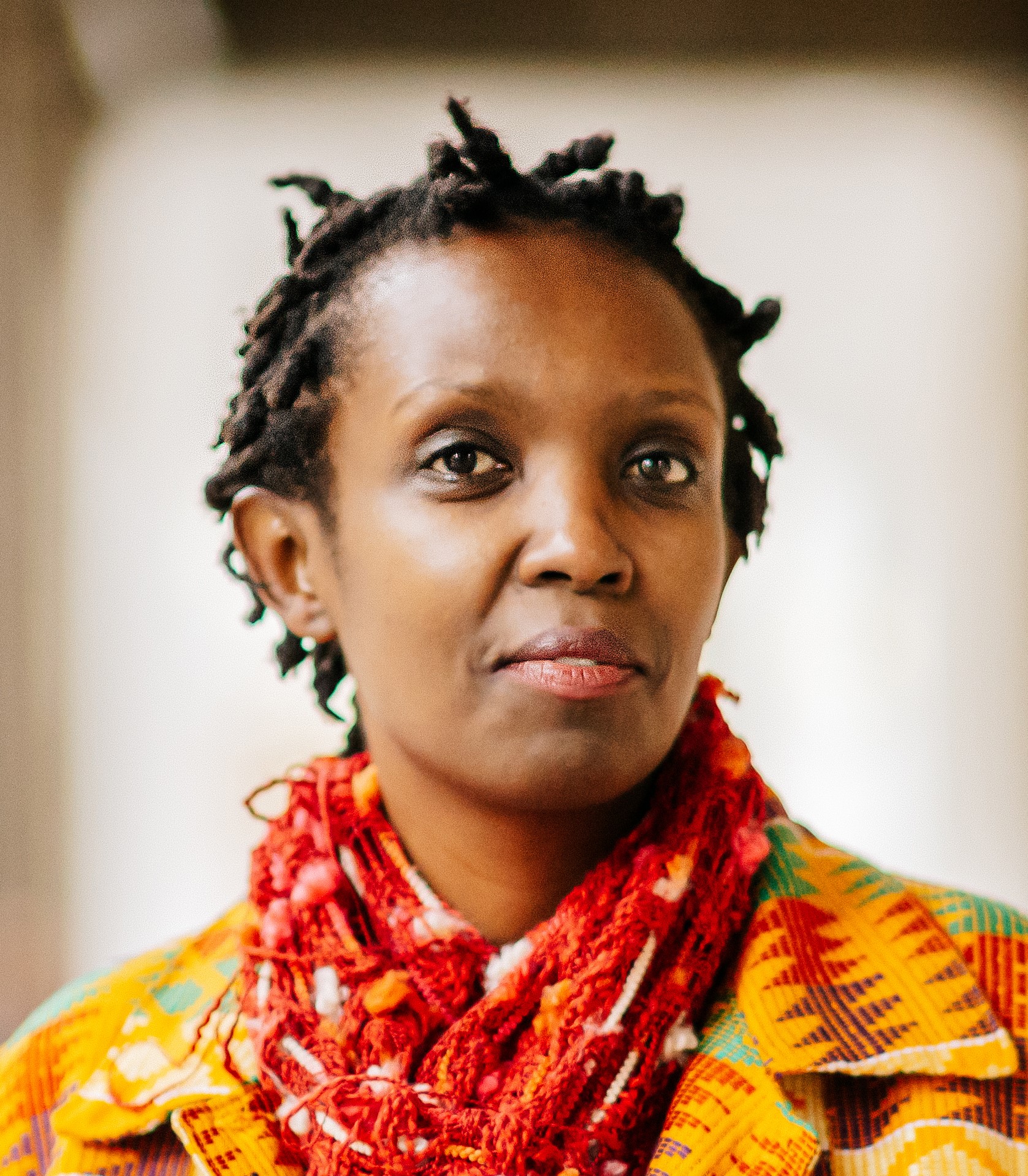
Connie Nshemereirwe is an independent science and policy facilitator, and Immediate Past Co-Chair of the Global Young Academy. She is also on the steering committee of the Africa Science Leadership Programme based at the University of Pretoria in South Africa.


